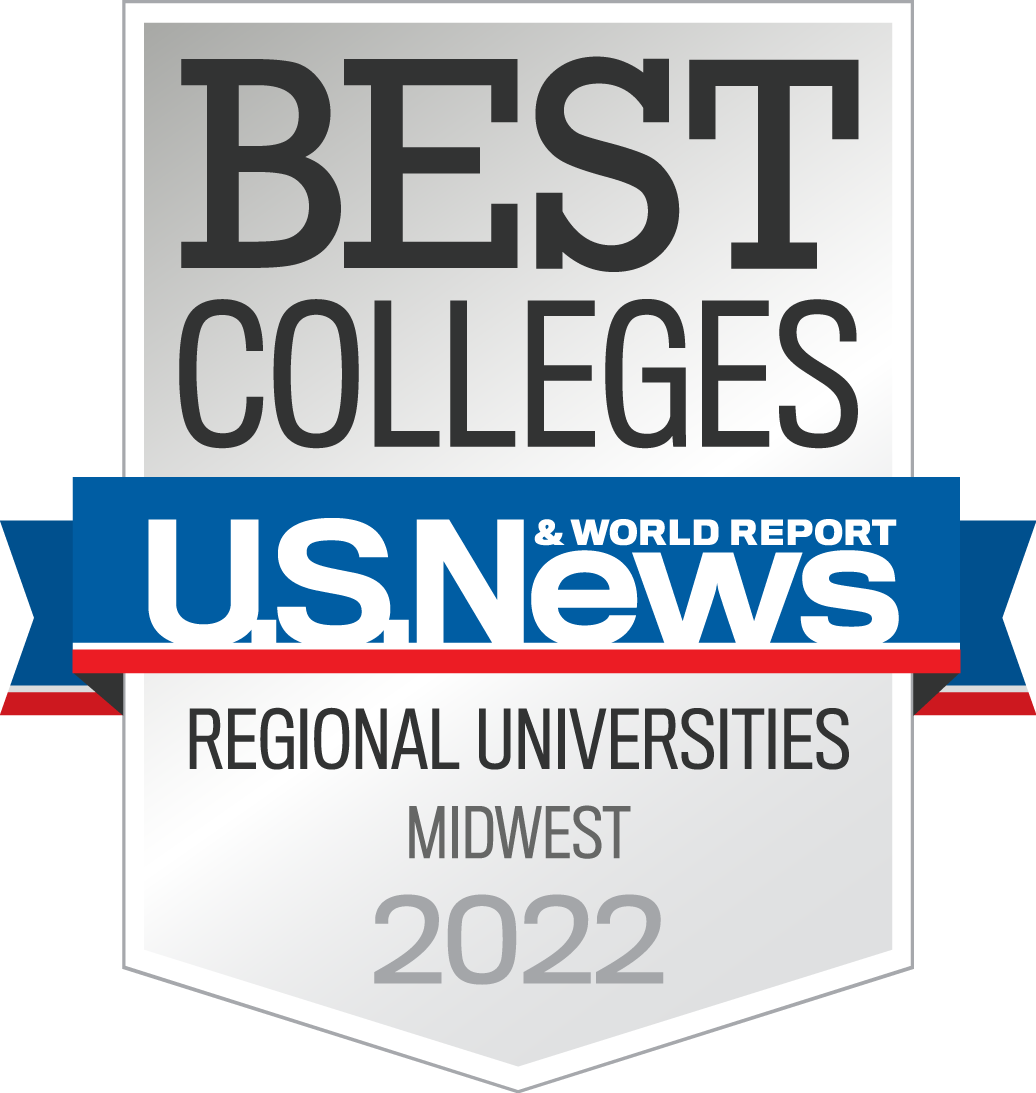Nursing is a Work of Heart

Nursing is a work of heart.
The very act of nursing calls for compassion, which is a gift of the heart. Nurses serve on the frontlines of our healthcare system. Today’s healthcare environment calls for tenaciousness and hard work. Nurses are able to wield both grace and grit in ever-changing conditions.
Today, nurses make up the largest healthcare profession in the United States. There are more than 4 million registered nurses (RNs), which is three times the number of physicians in the nation. Additionally, there are 290,000 nurse practitioners (APRNs).
In their large numbers, nurses are a massive force for touching the lives of patients. This article will explain and celebrate how nurses in their various roles positively impact people throughout the healthcare system.
Nursing is a Work of Heart: Registered Nurses (RNs)
RNs are the first responders of the healthcare system. They work face-to-face with both patients and their families, and are often the most consistent point of contact for patients in a hospital or clinic.
Nearly six out of every ten RNs work in a hospital, but RNs also provide care to patients in clinics, assisted living facilities, schools, camps, prisons, military bases and in patients’ homes.
The typical nurse-to-patient ratio varies widely in different environments. In a hospital, one RN can be responsible for 5-7 patients at a time. The number of patients for which a nurse is responsible is lower for specialty areas such as maternity or surgery wings.
In settings outside of hospitals, like assisted living facilities, the number of patients one RN can serve at a time might be much higher.
To serve multiple patients at a time, RNs must have both stamina and flexibility. They are able to make decisions and change settings often throughout the course of a work shift.
Throughout their days (and nights) on the job, RNs demonstrate that nursing is a work of heart. They arrive well-rested for their work and ready to serve their patients.
Here are a few of the tasks that RNs regularly do:
- Take vital signs, measurements and patient histories
- Examine a patient’s condition and symptoms
- Perform physical exams
- Take health histories
- Make recommendations to physicians
- Give medications

Advocacy and Education
In addition to performing their normal tasks, RNs serve their patients through advocacy and education. While a patient is present in the hospital or clinic, and when patients are leaving, nurses advocate for their patient's best interests and educate them to better meet their needs.
Keeping Patients Safe
RNs double-check for errors and watch for conflicting orders in order to keep their patients safe. Because RNs are the consistent caregivers for patients, they are able to relay information to fellow team members and collaborate with other nurses and healthcare professionals to advocate for the patient.

Educating Patients
RNs answer patient questions and educate patients about procedures and medications. They can even stay in the room with the patient during doctors’ visits, because they often know how to communicate the patient’s questions and concerns to the doctor.
If needed, RNs can translate information from the doctor to the patient or relay it to a family member who was not able to be present during the visit.
As patients prepare to leave the healthcare setting, RNs help by teaching them how to manage conditions and provide direction on medications. They can explain home healthcare plans or give details regarding follow up care or upcoming appointments.
Patients and family members who are nervous about leaving the healthcare setting can be reassured by nurses who take time to offer them guidance.
Offering Compassion
RNs show that nursing is work of heart by offering empathy to patients and giving family members emotional support. This kind-heartedness is what nurses have long been known for around the world. In fact, a compassionate nurse in a difficult situation is often the inspiration for a young person who decides to one day become a nurse.
RNs can support the continuation of compassionate care by connecting patients and family members to community resources as they go home. RNs can also communicate with case managers or social workers to help assure patient needs are met.

Nursing is a Work of Heart: Nurse Practitioners
A nurse practitioner (NP) is an advanced practice registered nurse (APRN) who is qualified to treat certain medical conditions. Currently, 75% of NPs work in primary care settings where they serve in very similar roles as physicians.
All NPs hold at least a master’s degree and have attained national licensure and certification. This enables them to diagnose illnesses, create treatment plans, and prescribe medications.
There are a variety of NP specialties that span the healthcare industry. A few in-demand ones include:
- Family Nurse Practitioner (FNP)
- Adult-Gerontology Primary Care Nurse Practitioner (AGPCNP)
- Psychiatric Mental Health Nurse Practitioner (PMHNP)
- Pediatric Nurse Practitioner - Primary Care (PNP-PC)
FNPs serve patients across the lifespan, from age 0 and up. They make up more than 60% of NPs and are in high demand.
Whereas, AGPCNPs focus on treating patients from adolescence through elderly age. About 7% of NPs are AGPCNPs.
PMHNPs assess and treat patients dealing with major psychiatric disorders. Around 4.7% of NPs are PMHNPs.
PNPs focus their care on infants, children, and adolescents, often those with complex or chronic medical conditions. They account for 3.2% of NPs.
NPs share many of the same responsibilities as physicians. In some states, they can even open their own practice and work autonomously.
Aside from primary care settings, NPs can also be found in hospitals, acute care, long-term care facilities, and nursing homes.
Some of the typical tasks NPs provide are:
- Diagnose and treat illness
- Prescribe medication
- Analyze and interpret patient health histories
- Create individualized health plans
- Work with patients towards a healthy lifestyle
- Consult and supervise other members of a patient’s healthcare team
The role of a nurse practitioner is so much bigger than routine tasks. Here are a few ways how NPs show their patients that nursing is a work of heart:
The role of a nurse practitioner is so much bigger than routine tasks. Here are a few ways how NPs show their patients that nursing is a work of heart:

Across a Lifetime
The majority of NPs work in primary care settings and develop long-term relationships with their patients. This is especially the case with FNPs who have the unique opportunity to serve patients across the lifespan.
FNPs promote health during different developmental stages and often see patients throughout the course of their lives.
Many FNPs take a holistic approach by educating patients about healthy lifestyles and disease prevention. For them, nursing is a work of heart because it involves caring for the whole person, rather than simply treating a single illness or set of symptoms.

For The Whole Family
The role of NPs was first developed to serve children who needed more access to healthcare, but today NPs serve entire families. They can even partner with family members to better their patient’s care, whether it be communicating needs or offering plans for restored health.
With the ability to treat patients of all ages, FNPs in particular are able to extend care to an entire family.
Because they can serve a patient for a lifetime, FNPs can be intimately familiar with both a patient’s history and with the patient’s community. When an illness develops, NPs are able to treat the patient with understanding and compassion for all that has come before and all that surrounds the patient.
This same familiarity of previous health history and community dynamics makes an FNP better poised to serve multiple generations in one family. For example, if they are treating a mother for an illness, they can be aware of the ways that her illness might be affecting other family members. FNPs are able to guide the whole family towards smarter lifestyle choices or needed support.

During Long-term Illness
If a patient has repeated visits for chronic ailments or long-term illness, their NP will meet with them regularly to enable their treatment plan, monitor and improve their condition and help restore them to the fullest extent of health possible.
NPs often become a comforting familiar face for the long-term patients they serve.
NPs can also serve as the central point of contact among a larger team of healthcare providers when a patient is enduring a long-term illness. For example, specifically for cancer patients, it has been found that “NPs have a key role in ensuring continuity of care,” and that “the formal collaborative plan of care is essential in long-term cancer survivorship care."

At The End of Life
NPs can specialize in providing palliative care, but also non-specialized NPs have been found to have a positive impact on end-of-life care. AGPCNPs may use their expertise to compassionately care for a long-term patient when they reach the end of their life.
In long term care facilities or even in patient’s homes, when NPs are providing palliative care, there are fewer hospital or emergency room visits. The expertise of NPs expands the ability of the healthcare industry to give end-of-life care without having to move the patients from where they are.
NPs can expand access to palliative care by making it available earlier for life-limiting and chronic illnesses. For patients who need relief from pain, NPs also serve as their advocate and guide.
Besides providing care for the patient, an NP in palliative care is also a source of comfort to family members, friends and carers. Home carers who have access to the advice and visits of NPs are more confident about caring for the patient.
When NPs escort their patients into eternity and show compassion to the patient’s family and friends, they illustrate how nursing is a work of heart

For The Good of The Public
NPs are also responsible for advising the public on health issues. Because they engage in continuous education, NPs are constantly aware of advances being made in their field, both in technology and methodology.
NPs are also improving access to healthcare. The Office of Disease Prevention and Health Promotion reports that “people with a usual source of care have better health outcomes, fewer disparities, and lower costs." The growth in the number of NPs means that more patients can have access to that “usual source of care” that is so important over the long term.
This improved access plays out in a number of ways, but especially impacts rural communities, communities in poverty and the elderly.
Because NPs can do much of what a regular primary care physician can do, they can often serve in a rural healthcare community where there is a shortage of physicians.
In fact, 18 percent of NPs practice in communities of fewer than 25,000 residents, and are often the sole provider of healthcare in a rural community.
Research shows that in states where NPs can practice within the full scope of their licensing, they increase the primary care access for a rural community to a level that is equal to or better than that of patients who are treated by medical doctors.
For those patients whose medical care is provided through Medicaid or Medicare, the expanded presence and practice of NPs is making an impactful difference. The majority of clinics where NPs work accept Medicare and Medicaid patients.
In fact, research has found that graduating NPs differ from graduating doctors in that they are more likely to choose to serve a lower-income community.
Making the choice to go where they are most needed is one more way that NPs show that nursing is a work of heart. Especially in states where they have full practice authority, NPs are standing in the gap for patients with much-needed greater access to healthcare.

Nursing is a Work of Heart: Nurse Educators
Nurse educators devote their careers to teaching aspiring nurses. They have advanced nursing degrees and a wealth of experience that serve their students, as well as the entire healthcare industry. The best nurse educators are motivated to help others and show how teaching the practice of nursing is a work of heart.
Standing in The Gap
The shortage of nurse educators is such that every year, thousands of qualified students are denied the opportunity to pursue a nursing education. A study by the American Association of Colleges of Nursing (AACN) found that 56 percent of nursing schools had vacant full-time nursing faculty positions.
Pursuing a career as a nurse educator is a way to provide for this shortage and growing demand for nurses. Nurse educators also have the opportunity to impact lives by nurturing the next generation of nurses.
In the US, the population of people over 65 is consistently growing each year, so more nurses are required to meet the demand for patient care. These shifting demographics also mean that the number of nurses retiring each year is trending upwards.
The American Association of Colleges for Nursing has noted that, “The Health Resources and Services Administration projects that more than 1 million registered nurses will reach retirement age within the next 10 to 15 years."
Nurse educators are key to making sure that there will be enough nurses available to provide access to the services needed for the growing number of aging patients and to fill the roles of nurses who are retiring.

Training the Next Generation of Nurses
A nurse educator’s career involves the development and nurturing of the next generation of nursing students.
Nurse educators can serve in either a collegiate setting or a healthcare environment.
From the front of classrooms in colleges, vocational schools and post-secondary institutions, nurse educators are guiding students to discover for themselves that nursing is a work of heart. They inspire students with their own commitment to the healthcare industry and to individual patient care.
In order to provide the best curriculum and to educate the nurses of the future, nurse educators stay on top of healthcare trends and advancements in their field.
Within the healthcare environment, nurse educators work as practicum supervisors and staff development coordinators. They remain hands-on teachers, serving as mentors while nursing students transition from the classroom to the hospital or the clinic.
In the healthcare setting, nurse educators are not only supervising training for nurses, but they often are developing and facilitating that training. A passion for nursing and for teaching makes a nurse educator a vital member of the nursing industry.

Nursing is a Work of Heart: Healthcare Leaders
Healthcare leaders are qualified professionals who run the operational and business aspects of the healthcare industry.
They play an integral role in the functionality of our healthcare system. Healthcare leaders can serve in managerial or consulting roles. They are needed in hospitals and clinics, as well as in-home health programs and nursing homes.
After earning an advanced degree, aspiring healthcare leaders can choose from a variety of certifications to pursue depending on where they want to work and the roles they want to fill.
Healthcare Leader Roles
- Healthcare Administration
A healthcare administrator can be responsible for organizing and overseeing the health services and daily activities of a healthcare facility. They manage staff, budgets and communication, while also always making sure to secure the best possible patient care.
- Human Resource Development
Healthcare leaders who oversee human resources learn to influence the behaviors of the organization. They also enhance group and team performance and promote workplace learning and development.
- Management
A nurse manager is responsible for the direction of the nursing staff and oversight of patient care, so they must balance serving both the nurses they supervise and the patients under the nurses’ care.
- Organizational Consulting
Medical organizations rely on consultants to help them increase their efficiency and effectiveness. Healthcare leaders can serve as consultants to hospitals, clinics or assisted living facilities, educating other healthcare professionals and developing ways for them to improve their services.
- Executive Leadership
Executive leaders in healthcare are in charge of strategy and long-term development in an organization. They have to balance the business side of healthcare while remaining aware of patient needs and care.

Healthcare Leaders Manage Growing Complexity and Staff Shortages
Our healthcare systems are constantly growing more complex and multi-dimensional. By taking a holistic view of patient care, a healthcare leader does not only focus on medical needs.
The social and psychological aspects of patient care are being integrated into existing systems, requiring constant growth and change for the leaders who are managing those systems.
Also, the current and projected nursing staff shortages present a challenge for healthcare leaders. One study shows that there is presently a shortage of 200,000 nurses.
Additionally, as the population continues to age, it is expected that by 2030, there will be a shortage of over 100,000 doctors. Healthcare leaders will need to find ways to keep their current staff from being overburdened, while still meeting the needs of the populations they serve.
The constant dance of serving and supervising staff members, while also keeping patient care in mind, is similar to the way that nursing is a work of heart.
Both nurses and healthcare leaders have to draw on their ability to show compassion while working hard to meet the physical demands of their jobs.

Spring Arbor Values How Nursing is a Work of Heart
Spring Arbor University honors the important work of nurses and nurse leaders. As nursing professionals work harder than ever to meet the demands of today's healthcare landscape, Spring Arbor offers support to those who wish to take the next step in their career.
Spring Arbor’s online Master of Science in Nursing (MSN) program is uniquely designed for working nurses offering:
- A flexible online format with no set login times
- A unique 7-1-7 model that lets you recharge for one week after each 7-week course
- The option to take one course at a time during most of the program
- Ongoing support a close community of students and faculty
- Faith-based learning that enriches your developmental journey in a holistic manner
For RNs without a Bachelor’s degree in nursing, Spring Arbor’s MSN program also has bridge options available. This allows students to work towards their advanced degree and earn their BSN along the way.
Become a nurse practitioner, nurse educator, or earn a dual degree in business and nursing. Read on to learn more.

Spring Arbor Online Advanced Nursing Degrees
Spring Arbor University offers the following different online advanced nursing degree programs:
Nurse Practitioner (MSN-NP)
- Family Nurse Practitioner: Earn a position of autonomous care with the clinical knowledge and skills needed to treat patients of all ages (0 & up).
- Adult-Gerontology, Primary Care Nurse Practitioner: Master primary care knowledge and clinical reasoning skills to best care for adolescents, adults and the elderly.
- Primary Care Pediatric Nurse Practitioner: Build clinical skills and knowledge to help promote overall health in children through primary care.
- Psychiatric Mental Health Nurse Practitioner: Learn to accurately assess and treat people dealing with mental health conditions in a clinical setting.
Nurse Educator (MSN Ed)
Combine your passions for nursing and teaching to shape the nursing students of the future. Nurse educator jobs are in demand as the healthcare field continues to grow, and this demand enables nurse educators to have a lot of flexibility over their workload and schedule. Learn to inspire, train and mentor the next generation of nurses.
Healthcare Leaders (MSN/MBA dual degree)
Distinguish yourself as a healthcare leader by adding business acumen to your MSN degree in our program especially designed for working nurses.
You can also specialize your skills with one of these concentrations for MSN MBA dual degree programs online:
- Healthcare Administration: Address the complexities and trends in the healthcare industry by focusing on contemporary issues in healthcare administration, policy, economics, quality and strategy of health care management.
- Human Resource Development: Prepare to effectively lead a human resources department, while learning how to influence organizational behaviors, enhance group and team performance and promote workplace learning and development.
- Management: Engage your competitive strategy skills in a computer-simulated business environment, as well as examine management and human resource development, management statistics and ethical leadership topics.
- Organizational Consulting: Understand, predict and influence individual and group behavior to increase the efficiency and effectiveness of medical organizations.
- Executive Leadership: Develop skills to think strategically and become an expert in planning corporate growth, strategic development & long-term development.

A Caring Community
At Spring Arbor, your spiritual growth is just as important as your academic growth. This is why each of our educational programs offers a student experience that is built on a foundation of academic and educational integrity and faith.
We believe that integrating faith into education enables students to advance their purpose in life in a way that is needed in society. We believe that when nurses keep their faith at the center of their lives, they are the best possible example of how nursing is heart work.
Learn more about Spring Arbor’s online MSN program.








